Ditapis dengan

E-book Rethinking the Andes–Amazonia Divide : A cross-disciplinary exploration
Maps in this book were reproduced by Paul Heggarty from maps provided by chapter authors, by converting them into a GIS (Geographic Information System) database, collated and enriched for South America for the purposes of this book. All data used on the maps are thus geo- referenced – set to actual latitude and longitude coordi-nates – as precisely as possible. Individual p…
- Edisi
- -
- ISBN/ISSN
- 9781787357358
- Deskripsi Fisik
- 421 hlm
- Judul Seri
- -
- No. Panggil
- 980 PEA r

E-book The Sustainable Asian House: Thailand, Malaysia, Singapore, Indonesia,…
The Sustainable Asian House celebrates modern architecture as an expression of environmental, social and cultural sustainability, as seen in some of the most breathtaking luxury homes in Southeast Asia. Gorgeous residences in Thailand, Malaysia, Singapore, Indonesia and the Philippines beautifully exemplify the trend towards sustainable architecture that engages with the natural world. The 2…
- Edisi
- -
- ISBN/ISSN
- 9780804848978
- Deskripsi Fisik
- 368 halaman, ilus.
- Judul Seri
- -
- No. Panggil
- 747.3 MSG t
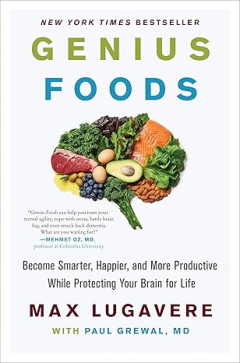
E-book Genius Foods: Become Smarter, Happier, and More Productive While Prote…
New York Times Bestseller Discover the critical link between your brain and the food you eat and change the way your brain ages, in this cutting-edge, practical guide to eliminating brain fog, optimizing brain health, and achieving peak mental performance from media personality and leading voice in health Max Lugavere. After his mother was diagnosed with a mysterious form of dementia, Max…
- Edisi
- -
- ISBN/ISSN
- 9780062562852
- Deskripsi Fisik
- 561 halaman
- Judul Seri
- -
- No. Panggil
- 641.3 LUG g
E-book Playful Materialities : The Stuff That Games Are Made Of
Augmented reality can be understood as an integration of the virtual into the real or augmentation thereof. This places augmented reality on the ‘reality’ side of the mixed reality continuum,1 meaning that virtual elements usually exist as foreign bodies in a real space. While there are many possible applications for augmented reality, its potential for a…
- Edisi
- -
- ISBN/ISSN
- 9783839462003
- Deskripsi Fisik
- 405 hlm
- Judul Seri
- -
- No. Panggil
- 005.5 BEI p
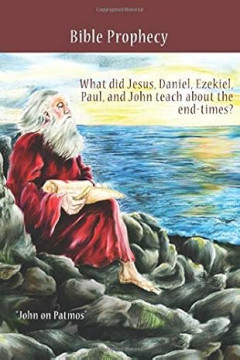
E-book Bible Prophecy: What did Jesus, Daniel, Ezekiel, Paul, and John Teach …
Keep Watch! That simple warning summaries Jesus’ teaching about the end-times. That warning accompanied parables that explained its significance. One such story concluded that if the owner of the house had known when the thief was coming, he would have kept watch and not been robbed. (Matthew 24:43) There are practical aspects of keeping watch. Epic world events have already placed the world …
- Edisi
- -
- ISBN/ISSN
- 9781980304517
- Deskripsi Fisik
- 118 halaman
- Judul Seri
- -
- No. Panggil
- 230 SHO b
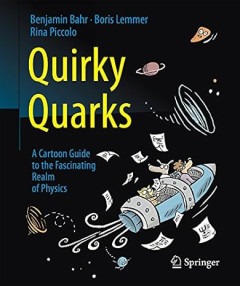
E-book Quirky Quarks: A Cartoon Guide to the Fascinating Realm of Physics
Do you love quantum physics, cosmology, and the humor behind the popular television show The Big Bang Theory? Have you been on the lookout for a fun, non-technical explanation of the science behind things like time travel, wormholes, antimatter, and dark energy? You’ll find all of that, and more, inside this fact-filled, cartoon-packed book. In Quirky Quarks: A Cartoon Guide to the Fa…
- Edisi
- -
- ISBN/ISSN
- 9783662495070
- Deskripsi Fisik
- 338 halaman, ilus.
- Judul Seri
- -
- No. Panggil
- 001.01 BAH q
E-book Spacecraft Structures: A Lesson in Engineering
NASA engineers at Marshall Space Flight Center, along with their partners at other NASA centers and in private industry, are designing and building the next generation of rockets and spacecraft to transport cargo, equipment, and human explorers to space. Known collectively as Deep Space Exploration Systems, the Space Launch System (SLS) rocket, the Orion spacecraft, and ground systems at Kenned…
- Edisi
- -
- ISBN/ISSN
- -
- Deskripsi Fisik
- 56 halaman
- Judul Seri
- -
- No. Panggil
- 629.46 NAS s
E-book Rivers of the Anthropocene
“There was no such thing as the Scientific Revolution, and this is a book about it” (Shapin 1996, 1). So began Stephen Shapin’s The Scientific Revolution, a work, con-cise and smart, that embodied an approach to the history of science termed “the social construction of science.” Shapin argued that if we are going to talk about a “scientific revolution,” then we need to see it not …
- Edisi
- -
- ISBN/ISSN
- 9780520967939
- Deskripsi Fisik
- 244 hlm
- Judul Seri
- -
- No. Panggil
- 550 BEN r

E-book The King Never Smiles: A Biography of Thailand's Bhumibol Adulyadej
Thailand’s Bhumibol Adulyadej, the only king ever born in the United States, came to the throne of his country in 1946 and at the time of his death, in October 2016, was the world’s longest serving monarch. The King Never Smiles, the first independent biography of Thailand's monarch, tells the unexpected story of Bhumibol's life and sixty-year rule—how a Western-raised boy came to be seen…
- Edisi
- -
- ISBN/ISSN
- 9780300106824
- Deskripsi Fisik
- 514 halaman
- Judul Seri
- -
- No. Panggil
- 959.3 HAN t
E-book Atlas of Petromodernity
In classical mythology, Atlas carries the weight of the world and the star-studded sky on his shoulders. Much like his brother Prometheus, Atlas, a Titan, is punished by the victorious Olym-pian gods, led by Zeus, for siding with Kronos and the humans created by the Titans in the war against them. Prometheus is also notorious for having given humanity fire. Consequently, he…
- Edisi
- -
- ISBN/ISSN
- 9781685712198
- Deskripsi Fisik
- 361 hlm
- Judul Seri
- -
- No. Panggil
- 665.5 KLO a
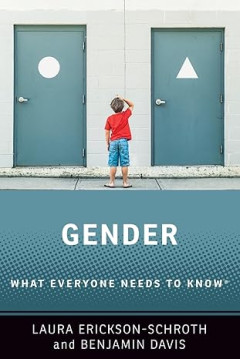
E-book Gender: What Everyone Needs to Know®
The term "gender" was first distinguished from "sex" in the 1950s, when psychologists began to discuss the idea of "gender roles"--behaviors and responsibilities given to people by a society rather than flowing from their biology. Over the last two decades, transgender people have expanded our understanding of gender even further, introducing to the mainstream the concept of "gender identity," …
- Edisi
- -
- ISBN/ISSN
- 9780190880026
- Deskripsi Fisik
- 209 halaman
- Judul Seri
- -
- No. Panggil
- 305.3 ERI g
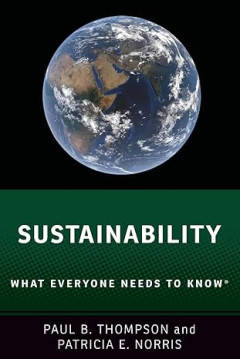
E-book Sustainability: What Everyone Needs to Know®
While politicians, entrepreneurs, and even school children could tell you that sustainability is an important and nearly universal value, many of them, and many of us, may struggle to define the term, let alone trace its history. What is sustainability? Is it always about the environment? What science do we need to fully grasp what it requires? What does sustainability mean for business? How ca…
- Edisi
- -
- ISBN/ISSN
- 9780190883232
- Deskripsi Fisik
- 273 halaman
- Judul Seri
- -
- No. Panggil
- 333.7 THO s
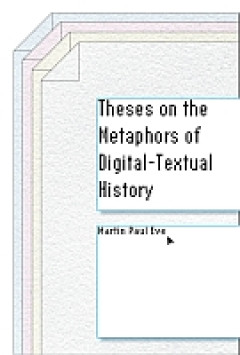
E-book Theses on the Metaphors of Digital-Textual History
Digital spaces are saturated with metaphor: we have pages, sites, mice, and windows. Yet, in the world of digital textuality, these metaphors no longer function as we might expect. Martin Paul Eve calls attention to the digital-textual metaphors that condition our experience of digital space, and traces their history as they interact with physical cultures. Eve posits that digital-textual metap…
- Edisi
- -
- ISBN/ISSN
- 9781503614888
- Deskripsi Fisik
- 436 halaman
- Judul Seri
- -
- No. Panggil
- 006.7 EVE t
E-book Television Drama in Spain and Latin America : Genre and Format Transla…
An unexpected and enviable problem has emerged in the US: the existence of an excess of quality television series sometimes known as ‘peak TV’. The year 2015 beat the previous record with the transmission of more than four hundred titles. It is no wonder, then, that the special issue of Entertainment Weekly dated 18 September of that year, which provides a preview of t…
- Edisi
- -
- ISBN/ISSN
- 9780854572779
- Deskripsi Fisik
- 228 hlm
- Judul Seri
- -
- No. Panggil
- 791.45461 JUL t
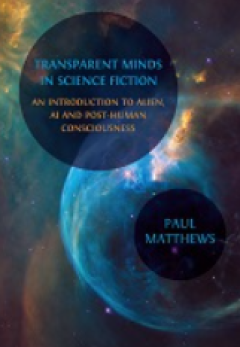
E-book Transparent Minds in Science Fiction : An Introduction to Alien, AI an…
It should be more widely appreciated that literature is a kind of scientific tool that can be used to shed light on consciousness. The argument is that the richest description of the phenomenon of human experience come from our finest writers, who are capable of capturing moments in time in exquisite detail from multiple perspectives. In this view, there is no …
- Edisi
- -
- ISBN/ISSN
- 9781805110484
- Deskripsi Fisik
- 146 hlm
- Judul Seri
- -
- No. Panggil
- 006.3 MAT t

E-book Contemporary Challenges in Securing Human Rights
Since 1948, the study of human rights has been dominated by legal scholarship that has sought to investigate the development of human rights law, emerging jurisprudence, regional systems, the decisions and recommendations of human rights mechanisms and institutions and to a lesser extent the ‘compliance gaps’ between state commitments and actions. Even so, in all of these spheres there are …
- Edisi
- -
- ISBN/ISSN
- 9780993110221
- Deskripsi Fisik
- 166 hlm
- Judul Seri
- -
- No. Panggil
- 341.48 LEN c

E-book The Made-Up State : Technology, Trans Femininity, and Citizenship in I…
Maya Puspa steps out of her home and salon with confidence and grace, narrowly avoiding the puddles that have transformed her lane into a muddy track. She smiles, arching her thin, penciled-on eyebrows as she turns to a group of elderly men gathered over a chessboard. It is her evening walk and, cheerily greeting the men, Maya strides out of her lane and onto a city street. Maya li…
- Edisi
- -
- ISBN/ISSN
- 9781501766664
- Deskripsi Fisik
- 198 hlm
- Judul Seri
- -
- No. Panggil
- 306.74 HEG t

E-book The Saburo Hasegawa Reader
Saburo Hasegawa’s suddenly high-profile work and ideas resonated in a mid-twen-tieth-century American art world that had been largely leveled and restructured by the turmoil of World War II and its geopolitical aftermath. Modernist players and an existential ethos from Europe as well as philosophies from Asia eventually supplanted American scene regionalist artists and figurative and …
- Edisi
- -
- ISBN/ISSN
- 9780520298996
- Deskripsi Fisik
- 208 hlm
- Judul Seri
- -
- No. Panggil
- 700 HAS t
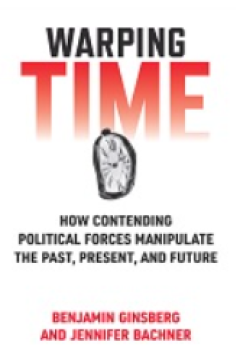
E-book Warping Time : How Contending Political Forces Manipulate the Past, Pr…
In a 2017 speech, Virginia governor Terry McAuliffe declared that the Confederate monuments should be removed because they helped to keep racism alive in present-day institutions and attitudes. President Donald Trump, for his part, argued that those attempting to remove the monu-ments were seeking to rewrite history in order to remove all traces of ideas with whi…
- Edisi
- -
- ISBN/ISSN
- 9780472903344
- Deskripsi Fisik
- 159 hlm
- Judul Seri
- -
- No. Panggil
- 320 GIN w

E-book The Poetry of Meng Haoran
After the three most famous poets – Li Bo ?? (701–762?), Wang Wei?? (701–761), Du Fu ?? (712–770) – of the reign of the Tangemperor Xuanzong ?? (r. 712–756) and extending roughly a decadeafterward, a half-century generally regarded as comprising the finestperiod of Tang poetry (i.e., the so-called “High Tang”), it is the poetMeng Haoran ??? (689–740) whose…
- Edisi
- -
- ISBN/ISSN
- 9783110734690
- Deskripsi Fisik
- 535 hlm
- Judul Seri
- -
- No. Panggil
- 895.1 KRO t

E-book Aramaic Daniel : A Textual Reconstruction of Chapters 1–7
The book of Daniel (Dan) presents us with many indications of multiple authorship and a complicated textual history. Most obviously, there are the oppositions of genre and language. Dan 1–6 contain loosely connected court tales, mostly narrated in the third person.1 Dan 7–12 contain apocalypses, mostly narrated in the first person.2 Largely but not e…
- Edisi
- -
- ISBN/ISSN
- 9789004521308
- Deskripsi Fisik
- 261 hlm
- Judul Seri
- -
- No. Panggil
- 228 SUC a
E-book The Secret to Teen Power
The truth is, THE SECRET helps bring riches to the poor, abundance to the hungry, peace to the war-torn, wellness to the unhealthy. But it can also help make dreams come true for you. Maybe you don’t think you deserve it. But you do. And if you can dream it, you have the power to make it happen. Seriously. Now, it might seem obvious, but the hardest part about living your dream is knowing jus…
- Edisi
- -
- ISBN/ISSN
- 9781847386939
- Deskripsi Fisik
- 169 hlm
- Judul Seri
- -
- No. Panggil
- 155.5 HAR t
E-book Making Ammonia : Fritz Haber, Walther Nernst, and the Nature of Scient…
The discovery of ammonia synthesis from the elements forms the basis of dis-cussion for many topics including fertilizer and food, environmental protection,the repercussions of scientific research, and economic transformation, as well asother industrial, political, and social events. The story in this book focuses on thedevelopment of the natural sciences and de…
- Edisi
- -
- ISBN/ISSN
- 9783030855321
- Deskripsi Fisik
- 273 hlm
- Judul Seri
- -
- No. Panggil
- 661.3 JOH m

E-book The Autobiography of Benjamin Franklin
Benjamin Franklin was born in Milk Street, Boston, on January 6, 1706. His father, Josiah Franklin, was a tallow chandler who married twice, and of his seventeen children Benjamin was the youngest son. His schooling ended at ten, and at twelve he was bound apprentice to his brother James, a printer, who published the “New England Courant.” To this journal he became a contributor, and later …
- Edisi
- -
- ISBN/ISSN
- -
- Deskripsi Fisik
- 161 hlm
- Judul Seri
- -
- No. Panggil
- 920 FRA t

E-book Eyewitness Travel: Australia
The best places to visit in Australia are showcased with fantastic photography and detailed descriptions, plus DK's unique illustrations and floor plans. Packed with valuable insider information such as Sydney's best beaches and Melbourne's buzzing shopping districts, along with a wealth of practical tips including hotel and restaurant listings, transportation maps, suggested itineraries, and t…
- Edisi
- -
- ISBN/ISSN
- 9781465467935
- Deskripsi Fisik
- 590 halaman, ilus.
- Judul Seri
- -
- No. Panggil
- 910 BOW e
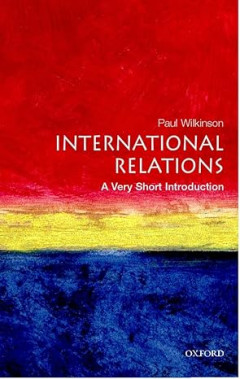
E-book International Relations: A Very Short Introduction
Covering topics such as foreign policy, the world economy, and globalization, this Very Short Introduction exemplifies the many disciplines that come together in the study of international events. Discussing not only the main academic theories, but also the practical problems and issues, Wilkinson considers key normative questions, such as how the international state system might be reformed so…
- Edisi
- -
- ISBN/ISSN
- 9780192801579
- Deskripsi Fisik
- 159 halaman
- Judul Seri
- -
- No. Panggil
- 327 WIL i
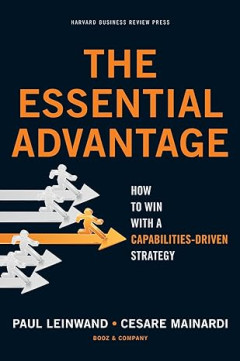
E-book The Essential Advantage: How to Win with a Capabilities-Driven Strategy
Conventional wisdom on strategy is no longer a reliable guide. In Essential Advantage, Booz & Company's Cesare Mainardi and Paul Leinwand maintain that success in any market accrues to firms with coherence: a tight match between their strategic direction and the capabilities that make them unique. Achieving this clarity takes a sharpness of focus that only exceptional companies have mastered…
- Edisi
- -
- ISBN/ISSN
- 9781422136515
- Deskripsi Fisik
- 171 halaman
- Judul Seri
- -
- No. Panggil
- 650 LEI t
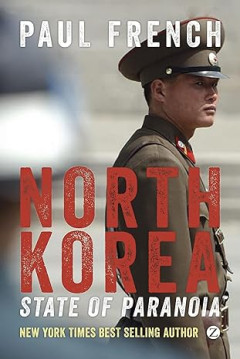
E-book North Korea: State of Paranoia: A Modern History
North Korea is a country that continues to make headlines - arousing curiosity and fear in equal measure. The world's most secretive nuclear power, it is a nation that still has Gulag-style prison camps, no internet and bans its people from talking to foreigners without official approval. In this remarkable and eye-opening book, internationally bestselling author Paul French examines in forensi…
- Edisi
- -
- ISBN/ISSN
- 9781780329482
- Deskripsi Fisik
- 482 halaman
- Judul Seri
- -
- No. Panggil
- 951.9 FRE n
E-book Civic Media Literacies : Re-Imagining Human Connection in an Age of Di…
In the fall of 2014, the small suburban Massachusetts town of Chelmsford was stirred by news about problems with their public school budget. The superinten-dent of schools announced an unexpected budget shortfall caused by various fac-tors within and beyond the school district. As an immediate emergency measure, it was announced that the school would relieve three administrators fr…
- Edisi
- -
- ISBN/ISSN
- 9781315526058
- Deskripsi Fisik
- 188 hlm
- Judul Seri
- -
- No. Panggil
- 302.23 MIH c
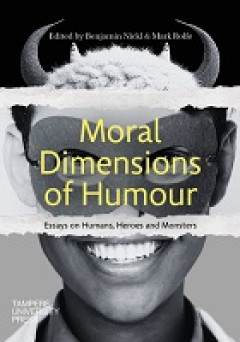
E-book Moral Dimensions of Humour: Essays on Humans, Heroes and Monsters
This volume explores the concept of humour and its relationship with human behaviour. The interdisciplinary essays in this book cover a wide range of time, from the sixteenth century to the present day. They delve into various cultural contexts, challenging social norms and prompting readers to reflect on the ethical implications of humour. The collection highlights the varied metaphors of hero…
- Edisi
- -
- ISBN/ISSN
- 9789523590533
- Deskripsi Fisik
- 238 halaman
- Judul Seri
- -
- No. Panggil
- 152.4 NIC m
E-book Connecting the Nation : A Short Thematic History of Australian Civil A…
Aviation has played an important part in shaping Australia’s culture and history through the course of the twentieth century. Australia embraced aviation from its earliest days, eagerly responding to its potential to cover a challenging country, to bring far-flung communities closer and to provide services that could not be delivered any other way. Add the romance of pioneer heroes, the vital…
- Edisi
- -
- ISBN/ISSN
- 9780994503954
- Deskripsi Fisik
- 140 hlm
- Judul Seri
- -
- No. Panggil
- 629.194 ASH c
E-book Handbook of Pharmaceutical Excipients
Aqueous solutions are subject to bacterial or enzymatic degradation but may be preserved by initially boiling the solution for a short time to inactivate any enzymes present; microwave irradiation can also be used. Aqueous solutions may also be preserved by the addition of an antimicrobial preservative such as 0.1% w/v benzoic acid, 0.1% w/v sodium benzoate, or a mixture of 0.17% w/v methylpara…
- Edisi
- -
- ISBN/ISSN
- -
- Deskripsi Fisik
- 917 hlm
- Judul Seri
- -
- No. Panggil
- 615.1 ROW h
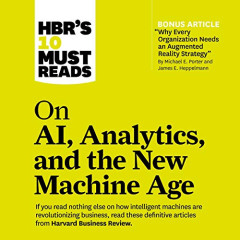
E-book HBR's 10 Must Reads on AI, ANALYTICS, AND THE NEW MACHINE AGE
Machine learning and data analytics are powering a wave of groundbreaking technologies. Is your company ready? We've combed through hundreds of Harvard Business Review articles and selected the most important ones to help you understand how these technologies work together, how to adopt them, and why your strategy can't ignore them. In this book, you'll learn how: data science, driven by …
- Edisi
- -
- ISBN/ISSN
- B081KBFLY9
- Deskripsi Fisik
- 193 halaman
- Judul Seri
- -
- No. Panggil
- 006.3 POR h
E-book The Sage Handbook of Diplomacy
Preparing a handbook on diplomacy nowadays reflects a major challenge that was not present during Satow’s times, and which lets us say a great deal more about diplomacy than Satow could. Specifically, a handbook today encounters and benefits from the development over the last 100 years of the academic discipline of International Relations and within it the rich and expanding field of Diplomat…
- Edisi
- -
- ISBN/ISSN
- 9781446298565
- Deskripsi Fisik
- 723 hlm
- Judul Seri
- -
- No. Panggil
- 327.2 CON t
E-book The Handy Geography Answer Book
- Edisi
- -
- ISBN/ISSN
- 9781578592159
- Deskripsi Fisik
- 418 halaman
- Judul Seri
- -
- No. Panggil
- 910.02 TUC t
- Edisi
- -
- ISBN/ISSN
- 9781578592159
- Deskripsi Fisik
- 418 halaman
- Judul Seri
- -
- No. Panggil
- 910.02 TUC t
E-book Abstractions Based on Circles: Papers on Prehistoric Rock Art Presente…
Presented to Stan Beckensall on his 90th birthday, this diverse and stimulating collection of papers celebrates his crucial contribution to rock art studies, and also looks to the future. It should be of value to students of prehistoric Britain and Ireland, and anyone with an interest in rock art, for many decades to come. Stan has done a phenomenal amount of work over recent decades, on an …
- Edisi
- -
- ISBN/ISSN
- 9781803273174
- Deskripsi Fisik
- 193 halaman, ilus.
- Judul Seri
- -
- No. Panggil
- 930.14 FRO a
E-book The Philosophy of Mathematics Education
This ICME-13 Topical Survey is designed to provide an overview of contemporaryresearch in the philosophy of mathematics education. This is a broad cluster ofoverlapping but at times disparate themes. In thefirst instance, this publicationexposes some of the problems and questions in mathematics education that thephilosophy of mathematics education clarifies, illuminates and sometimes helps toso…
- Edisi
- -
- ISBN/ISSN
- 9783319405698
- Deskripsi Fisik
- 33 hlm
- Judul Seri
- -
- No. Panggil
- 510.1 ERN t
E-book A Young Englishman in Victorian Hong Kong : The Diaries of Chaloner Al…
hroughout his adult life, Alabaster kept diaries. In 1987, they were donated to the Library of the School of Oriental and African Studies at the University of London.2 For much of his career, the diaries list his daily appointments and meetings with only brief notices of personal events; for this he used Letts’s brand diaries, one day for each page. However, the first four volume…
- Edisi
- -
- ISBN/ISSN
- 9781760465926
- Deskripsi Fisik
- 234 hlm
- Judul Seri
- -
- No. Panggil
- 951.2 PEN a
E-book A Complete Guide to Maggot Therapy : Clinical Practice, Therapeutic Pr…
There is a large and mostly unmet global need for affordable and efficacious wound care, despite modern-day medicine advancing at break-neck speed. Indeed, the tide of chronic wounds is rising. Modern lifestyle changes, particularly in low- and middle-income countries (LMICs), bring a rapid rise in non-communicable disease including cardiovascular disease, o…
- Edisi
- -
- ISBN/ISSN
- 9781800647305
- Deskripsi Fisik
- 470 hlm
- Judul Seri
- -
- No. Panggil
- 615.5 STA a
E-book Child Participation
This book defines children as people between the ages of 0 and 18 years. The extent of child participation should depend on the age, experience and maturity of the child. A baby cannot be expected to make logical decisions, while a child of seven years old should not be expected to take on the burdens and responsibilities of an adult. However, all children should be involved and consulted in so…
- Edisi
- -
- ISBN/ISSN
- 1904364438
- Deskripsi Fisik
- 65 hlm
- Judul Seri
- -
- No. Panggil
- 612.65 STE c
E-book Energy in the Americas; Energy in the Americas : Critical Reflections …
One of the most notable features of any survey of the history of energy regimes in the Americas over the past century is the “pendulum effect.” Anecdotal though the observation may be, it is clear that despite the broad and incremental transformational changes that have occurred in the global energy landscape over time, individual countries have un…
- Edisi
- -
- ISBN/ISSN
- 978155238940
- Deskripsi Fisik
- 403 hlm
- Judul Seri
- -
- No. Panggil
- 338.27 MON e
E-book Alex Ferguson: My Autobiography
Sir Alex Ferguson was born in 1941 in Govan, Scotland. A goal-scoring centre-forward, he was later transferred to Rangers, the club he supported from boyhood, for a Scottish record fee. Entering management in 1974, he served East Stirlingshire and St Mirren before guiding Aberdeen to victory in the 1982-83 Cup Winners' Cup. Arriving at Manchester United in 1986, he brought them 38 trophies, i…
- Edisi
- -
- ISBN/ISSN
- 9781848948631
- Deskripsi Fisik
- 238 halaman, ilus.
- Judul Seri
- -
- No. Panggil
- 927.9 HAY a
E-book Jail Design Guide
The opening statement of the preface to this guide identifies its purpose as one of helping to create “better” and “more effective” jails. Because such terms can mean different things to different people, they should be defined. The findings of the original small jails research indicated that better, more effective jails are fundamentally those that satisfy the basic needs of their occu…
- Edisi
- -
- ISBN/ISSN
- -
- Deskripsi Fisik
- 334 hlm
- Judul Seri
- -
- No. Panggil
- 725.6 KIM j
E-Book Arts for Transformative Education: A Guide for Teachers from the UNESC…
The arts offer tremendous potential for enriching, enlivening and propelling learning that transforms individuals and communities. Arts learning fuels transformative education that helps increase students’ capacity and motivation to build a more peaceful and sustainable world. However, to fully realize that potential, teachers must mindfully structure and support educational experiences to op…
- Edisi
- -
- ISBN/ISSN
- 9789231006517
- Deskripsi Fisik
- 67 halaman
- Judul Seri
- -
- No. Panggil
- 707 UNE a
E-book Lessons in Perception : The Avant-Garde Filmmaker as Practical Psychol…
Existing fi lm scholarship that draws from the fi eld of cognitive science has char-acterized commercial fi lmmakers as practical psychologists, who are experts at shaping our senses and ‘preying (usually in a good sense) on our habits of mind in order to produce experiences’ (Bordwell 2011). A skilled fi lmmaker will elicit emotional responses, draw the viewer’s attention to the appropri…
- Edisi
- -
- ISBN/ISSN
- 9781785336423
- Deskripsi Fisik
- 228 hlm
- Judul Seri
- -
- No. Panggil
- 791.4375 TAB l

E-Book Open Scholarship in the Humanities
Exploring the rise of open scholarship in the digital era and its transformational impact on how knowledge is created, shared, and accessed, this open access book offers new insights on the history, development, and future directions of openness in the humanities and identifies key drivers, opportunities, and challenges. The concept of open research is reconfiguring scholarly communication acro…
- Edisi
- -
- ISBN/ISSN
- 9781350232280
- Deskripsi Fisik
- 155 halaman
- Judul Seri
- -
- No. Panggil
- 371 ART o

E-Book Dogmatism: On the History of a Scholarly Vice
Why does the history of dogmatism deserve our attention? This open access book analyses uses of the term, following dogmatism from Victorian Britain to Cold War America, examining why it came to be regarded as a vice, and how understandings of its meaning have evolved. Whilst the field of scientific thought is committed to continuous innovation, ideas about dogmatism – with their roots in anc…
- Edisi
- -
- ISBN/ISSN
- 9781350399570
- Deskripsi Fisik
- 115 halaman
- Judul Seri
- -
- No. Panggil
- 901 PAU d
E-book Fundamentals of Cheese Science
It is believed that cheese evolved in the ‘Fertile Crescent’ between the Tigris and Euphratres rivers, in Iraq, some 8000 years ago during the “Agricultural Revolution”, when certain plants and animals were domesticated. Among the earliest animals domesticated were goats and sheep; being small, gregarious and easily herded, these were used to supply meat, milk, hides and wool. Cattle we…
- Edisi
- -
- ISBN/ISSN
- 9781489976819
- Deskripsi Fisik
- 803 hlm
- Judul Seri
- -
- No. Panggil
- 663 FOX f
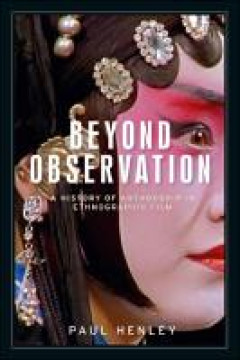
E-Book Beyond Observation: A History of Authorship in Ethnographic Film
This book analyses the authoring of ethnographic films between 1895 and 2015. It is based on the general argument that the ethnographicness of a film should not be gauged according to whether it is about an exotic culture, but rather by the degree to which it conforms to the norms of ethnographic practice more generally. On these grounds, it considers films made in a broad range of styles, on a…
- Edisi
- -
- ISBN/ISSN
- 9781526147295
- Deskripsi Fisik
- 563 halaman
- Judul Seri
- -
- No. Panggil
- 305.8 HEN b
E-book Snowboard Manual : Your Guide to Teaching & Riding from Beginner to Ad…
Snowboarding is addictive! If youre reading this, its highly likely that you're aware of this already and know first-hand how addictive snowboarding can be. You may even be an addict yourself. For many, the addiction to snowboarding begins the first time they slide down a snow-covered hill sideways, linking their first turns. This can occur within hours of picking up a snowboard, or it can take…
- Edisi
- -
- ISBN/ISSN
- -
- Deskripsi Fisik
- 342 hlm
- Judul Seri
- -
- No. Panggil
- 796.9 PHI s
 Karya Umum
Karya Umum  Filsafat
Filsafat  Agama
Agama  Ilmu-ilmu Sosial
Ilmu-ilmu Sosial  Bahasa
Bahasa  Ilmu-ilmu Murni
Ilmu-ilmu Murni  Ilmu-ilmu Terapan
Ilmu-ilmu Terapan  Kesenian, Hiburan, dan Olahraga
Kesenian, Hiburan, dan Olahraga  Kesusastraan
Kesusastraan  Geografi dan Sejarah
Geografi dan Sejarah